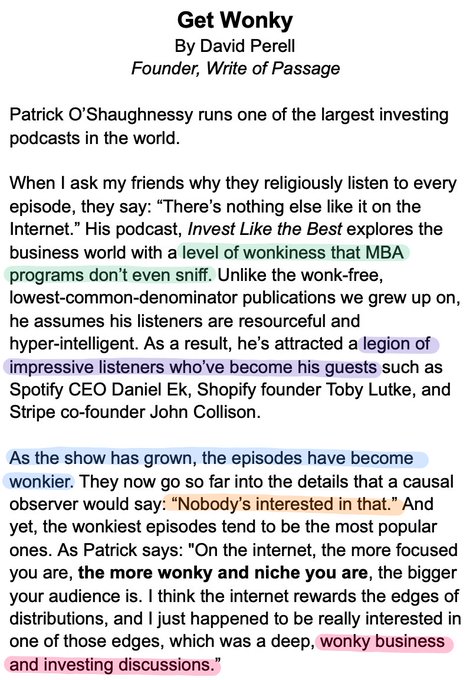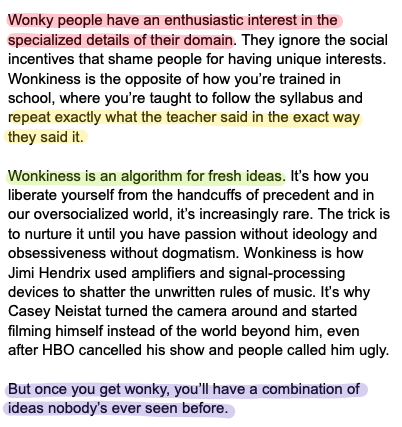
My favorite online creators are wonky.
They nerd out and produce things that nobody else could produce. Christopher Nolan is my favorite example, so I geeked out on his creative process to see how he made movies like Inception, Interstellar, and The Dark Knight.
They nerd out and produce things that nobody else could produce. Christopher Nolan is my favorite example, so I geeked out on his creative process to see how he made movies like Inception, Interstellar, and The Dark Knight.
Nolan's movies have grossed more than $5 billion.
Fans praise of his illustrious mastery of visual effects, beautiful establishing shots, epic soundtracks, and gripping action sequences.
This video outlines his creative process.
Fans praise of his illustrious mastery of visual effects, beautiful establishing shots, epic soundtracks, and gripping action sequences.
This video outlines his creative process.
Wonkiness is an algorithm for fresh ideas.
Wonky people have an enthusiastic interest in the specialized details of their domain, and they ignore the social incentives that shame people for being different.
Here's my mini-essay.

Wonky people have an enthusiastic interest in the specialized details of their domain, and they ignore the social incentives that shame people for being different.
Here's my mini-essay.


David Foster Wallace is one of my favorite examples of wonkiness in writers.
To write his last book, The Pale King, he read obscure parts of the American tax code and enrolled in classes at Illinois State University.
To write his last book, The Pale King, he read obscure parts of the American tax code and enrolled in classes at Illinois State University.
• • •
Missing some Tweet in this thread? You can try to
force a refresh













